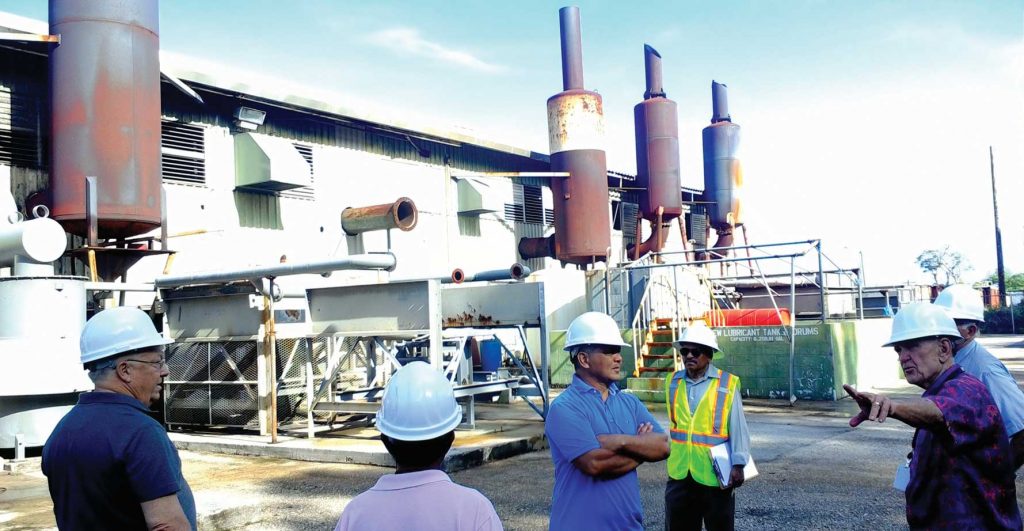CUC paying Aggreko over $300K monthly for 3 years now

File photo shows U.S. District Court for the NMI designated judge David Carter inspecting facilities of the Commonwealth Utilities Corp. Power Plant 4 in Puerto Rico in January 2020. (FERDIE DE LA TORRE)
The Commonwealth Utilities Corp. is paying over $300,000 a month to portable generator supplier Aggreko, which has been supplying Saipan with temporary power for almost three years now, according to new CUC deputy executive director Chretien Voerg.
Speaking at a meeting Wednesday with members of the House of Representatives’ Public Utilities, Transportation and Communications Committee, Voerg said they still have Aggreko helping them with their long-term plan of replacing power engine units with new permanent units.
“We do have a new engine on order and it’s in process of being delivered. As of right now, the scheduled delivery [for that unit] is this summer,” Voerg said.
PUTC chair Rep. Richard T. Lizama (D-Saipan) said he called the meeting because of concerns about the high utility bills that CUC consumers have been paying. Lizama said the meeting was intended to ferret out solutions to help CUC’s consumers.
“All of us have been getting a lot of calls in regards to fuel costs and power. I myself came up with a $900 utility bill,” Lizama said.
The lawmaker concedes it is an old issue and he and the committee want to hear from CUC about possible solutions to resolve this issue.
Voerg, who has been with CUC for only two months, appeared with a team before the PUTC Committee since CUC executive director Gary P. Camacho is off-island.
With respect to the new power engine that’s coming, Voerg said there will be installation period in order to get that unit up and running. He said the Aggreko contract will remain in place until such time that they have the ability to produce the power that Aggreko is supplying right now.
CUC power plant manager Richard Cano said they have five power engine units at Power Plant 1 and three units at Power Plant 2, which are all located in Lower Base.
At Power Plants 2 and 4, they have three running units but are under maintenance right now, Cano said
He said the power engines are obsolete and require a lot of maintenance, so they need additional units.
Right now, Saipan’s peak load is between 35 to 40 megawatts.
“Our current capacity at Power Plant 1 is 38 [megawatts] and at Power Plant 2 is six, and at Power Plant 4 is 10,” he said.
In response to the question of Rep. Vicente Camacho (D-Saipan) as to why the monthly billings of the consumers have tripled, Voerg said electric charges for CUC are based on three principles: One is a financial administrative fee and that is a flat rate. The second part is the base charges, which are used for operation and maintenance of the equipment and the supply lines to produce and supply power to individual homes and businesses in the CNMI. The third component is the Fuel Adjustment Charge, which is the direct payment to CUC’s fuel supplier.
Voerg said that CUC’s base rates for providing and producing electricity outside of fuel has not changed since 2014. “What changes on the monthly basis is the cost of the fuel. CUC’s electricity is generated by diesel-driven generators,” he said
Voerg said that, as fuel prices increase, those fuel price increases are passed along to the customers.
He said the formula for calculating that increase was established by the Commonwealth Public Utilities Commission.
“So that is outside of CUC’s control as well,” he added.



























